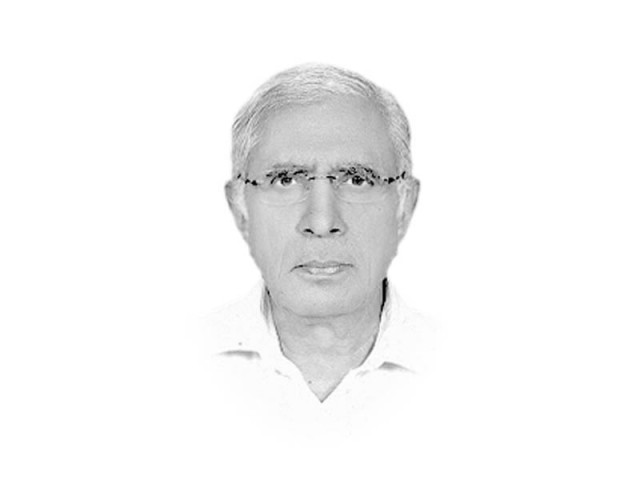Seeking a new economic model
Many countries grew successfully by ignoring the Washington Consensus and following the so-called Beijing Consensus.

The writer is Executive Editor of The Express Tribune
“Sovereign debt crises are essentially political crises: unable to inspire and too weak to guide, democratic leaders can no longer ask for sacrifice today to build a better tomorrow. Unable to mobilise popular support, elected leaders are vulnerable to the pressures of vested interest groups. Trapped between the demands of financial markets and multinational corporations for lesser liabilities and the expectations of their citizens for a better life, democratic leaders have few options but to postpone financing problems into the future. Lacking an alternative vision, as well as political room to manoeuvre, democratic leaders hide behind TINA (‘There is no alternative!’). At the same time, public debates over the grand direction for society have degenerated into a media circus. In other words, elected leaders no longer have the strength to lead their disillusioned constituents onto a new path. Decision-making has been delegated to unelected technocrats. The experts in these commissions, committees and counsels, however, are easy prey for lobbyists and pundits. In the crisis, representative democracy is even openly sidelined, either by forcing the hand of stubborn parliaments or by installing unelected technocrats at the head of governments, who execute the unpopular conditions imposed by financial markets.”
Next, the paper “The Economy of Tomorrow — How to produce socially just, sustainable and green dynamic growth for a Good Society” by Marc Saxer, the resident director (Thailand) of a German NGO, Friedrich-Ebert-Stiftung, asks: Why did political elites capitulate to the markets? Why did societies accept the cruelties of neoliberal reform without much complaint? Why did people stop fighting for a better future? His own answer to these questions: without the epic fight against an external enemy, sobered by its own excesses and follies, the West lost its revolutionary horizon. God declared dead, the communist paradise disenchanted and the state impotent, all hopes were put into the market. His prescription: without any utopian promise of a better future, the very idea of progress becomes meaningless. Without a vision for a Good Society, people do not come together to form a new community. Without a utopian dream for a better tomorrow, people will not fight to overcome their present-day challenges. ‘The audacity of hope’ is the necessary first step to put the subject back to its central role and mobilise the people for ‘change’.
In Mr Saxer’s opinion, China, South Korea, India, Thailand, Malaysia, Indonesia, Taiwan, Singapore, Hong Kong and Vietnam achieved their successes by ignoring the Washington Consensus and following a model based on what he describes as the Beijing Consensus, which, he says, flowed from the Japanese model. He maintains that obsession with GDP growth leads to great ecological and social distortions and needs to be replaced with a qualitative growth paradigm. “Growth, if measured in GDP or holistic benchmarks, is not an end in itself, but a means to tackle these challenges and produce a better society. The fundamental function of the economy is to produce the conditions for a Good Society with full capabilities for all … In the neoliberal model, economic dynamism grows out of the incentives set by inequality and competition (greed is good). Free markets are believed to drive innovation and productivity, while competition over resources strengthens efficiency. However, three decades of supply-side economics have produced only moderate productivity gains. At the same time, ‘shareholder-value capitalism’ has widened the social divide to a level last experienced before the Great Depression … All citizens (therefore) must have access to education, health care and credit, and must be able to start an enterprise or make best use of their talent. The market must benefit the people, not the other way around.”
Published in The Express Tribune, November 6th, 2013.
Like Opinion & Editorial on Facebook, follow @ETOpEd on Twitter to receive all updates on all our daily pieces.















COMMENTS
Comments are moderated and generally will be posted if they are on-topic and not abusive.
For more information, please see our Comments FAQ